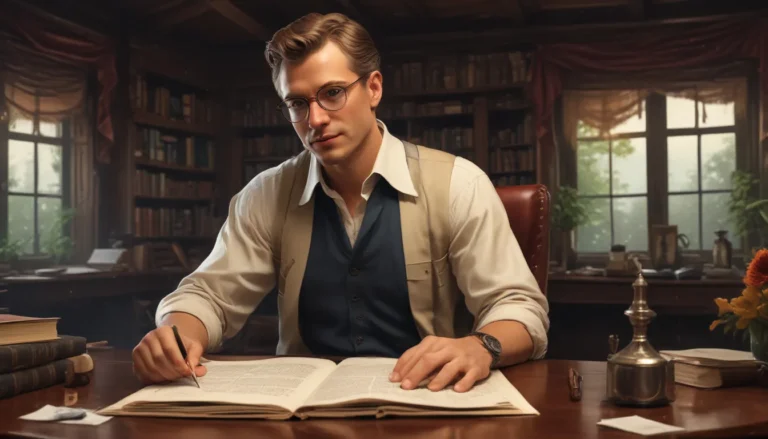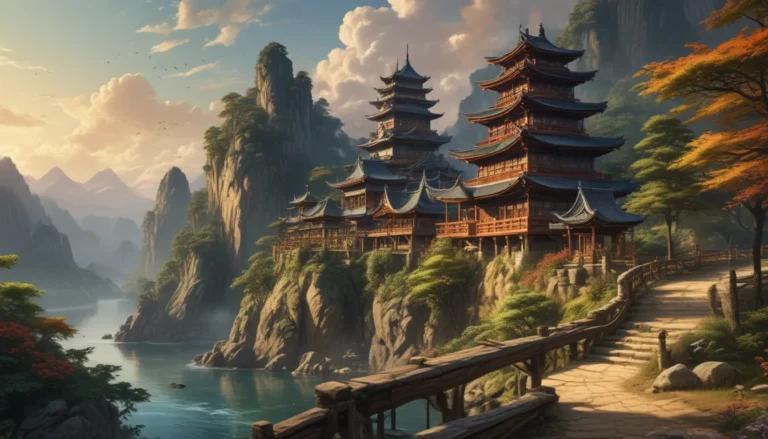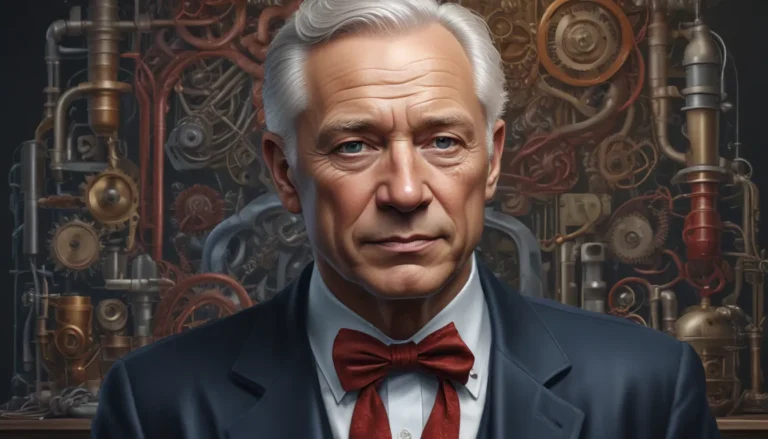The images in our articles may not match the content exactly. They are used to grab your attention, not to show the exact details in the text. The images complement the text but do not replace it.
Explorers have always fascinated us with their courage and determination to venture into the unknown. In the Age of Discovery, famous explorers paved the way for global connections and discoveries that changed the course of history. From Christopher Columbus to Zheng He, their expeditions opened up new lands and cultures, reshaping our understanding of the world. Join us as we delve into the lives and adventures of some of the most renowned explorers in history.
Abel Tasman
Abel Tasman, a Dutch explorer of the 17th century, embarked on voyages that led him to the South Pacific Ocean. During his expeditions in 1642 and 1644, Tasman discovered Fiji, New Zealand, and Tasmania. Interestingly, he named Tasmania after his corporate sponsor, Anthony van Diemen, but the island received its modern name under British rule in 1856. Despite his significant discoveries, the Dutch East India Company viewed Tasman’s findings as disappointing due to the lack of exploitable resources. Tasman retired in Batavia, now Jakarta, and passed away in 1859.
Alfonso de Albuquerque
Alfonso de Albuquerque, a Portuguese military officer in the early 16th century, became renowned as the Viceroy of Portuguese India. His naval command skills were unmatched, leading the first European fleet to sail into the Red Sea and capturing key territories in the Persian Gulf. Albuquerque’s military conquests included Goa in 1510 and Malacca in 1511. Beyond his military achievements, he excelled as a skilled diplomat, establishing relations with neighboring kingdoms and exploring trade possibilities with Ming China. His numerous accomplishments earned him titles like “the Great” and “the Portuguese Mars.”
Alonso de Ojeda
Alonso de Ojeda, a Spanish conquistador of the late 15th and early 16th centuries, played a crucial role in exploring South America. Serving under Christopher Columbus, de Ojeda participated in expeditions to the New World, later embarking on his own conquests in Colombia and Guyana. Despite his initial achievements, de Ojeda faced adversity, including capture by pirates and eventual retirement in the Dominican Republic. His later years were marked by reflection on his actions as a conquistador, seeking repentance for past cruelties.
Amerigo Vespucci
Amerigo Vespucci, a Florentine explorer of the mid-15th and early 16th centuries, left a lasting legacy with his exploration of the Americas. Although historical accounts of his voyages remain ambiguous, Vespucci is credited with popularizing the term “the New World.” His recognition of the Americas as distinct continents, rather than mere islands, revolutionized geographical understanding. Vespucci’s contributions inspired mapmakers to name the continents in his honor, despite the uncertainty surrounding his travels.
Antonio de Abreu
Antonio de Abreu, a Portuguese officer under Alfonso de Albuquerque in the late 15th and early 16th centuries, led an expedition in search of the Spice Islands. With the assistance of local guides, de Abreu navigated through Indonesia, exploring Java, Ambon Island, and the Bunda Islands. His successful acquisitions of nutmeg and cloves showcased his strategic prowess in securing valuable resources. Tragically, de Abreu’s life was cut short on his journey back to Portugal, with his death occurring on the Azores Islands.
Bartolomeu Dias
Bartolomeu Dias, a prominent explorer from 15th century Portugal, set out to find a sea route to the Orient. His exploration of the African coast culminated in reaching the Cape of Good Hope, a significant milestone in maritime history. Despite facing turbulent weather conditions, Dias persevered and paved the way for future explorers to navigate the treacherous waters. The renaming of the Cape of Good Hope in honor of his achievements highlights his enduring legacy in the annals of exploration.
Christopher Columbus
Christopher Columbus, an Italian explorer commissioned by Spain in 1492, discovered the New World during his historic voyage. Landing in the Bahamas, Columbus’s expeditions across the Caribbean Sea marked a turning point in global exploration. While his achievements opened new frontiers for European expansion, Columbus’s controversial methods and treatment of native populations tarnished his reputation in history. Nevertheless, his voyages laid the foundation for the colonization of the Western Hemisphere.
Diogo Cao
Diogo Cao, a Portuguese explorer of the late 15th century, made significant contributions to early exploration along the African coast. His expeditions to the Congo River and beyond debunked prevailing superstitions and expanded European knowledge of the African interior. Cao’s establishment of the Elmina Castle stands as a beacon of European presence in sub-Saharan Africa, marking a pivotal moment in cross-continental exploration.
Ferdinand Magellan
Ferdinand Magellan, a renowned explorer from Portugal, achieved global recognition for his groundbreaking circumnavigation of the world. Departing from Spain in 1518, Magellan’s expedition to the Pacific Ocean via South America culminated in the first successful voyage around the globe. Despite meeting adversity and tragedy during his travels, Magellan’s legacy endures as a testament to human determination and exploration.
Francis Drake
Francis Drake, an English explorer of the 16th century, distinguished himself through his circumnavigation of the globe in a single voyage. His audacious raids against Spanish territories and naval exploits cemented his reputation as a formidable seafarer. Drake’s daring escapades on the high seas captured the imagination of his contemporaries and secured his place in history as an iconic figure of the Age of Exploration.
Francisco Serrao
Francisco Serrao, a Portuguese explorer of the early 16th century, embarked on a perilous journey to the Spice Islands alongside fellow explorer Antonio de Abreu. Despite facing shipwrecks and setbacks, Serrao’s resilience and adaptability led to valuable alliances with local rulers. His pivotal role as an advisor to the Sultan of Ternate underscored his diplomatic prowess and enduring influence in the region.
Georg August Wallin
Georg August Wallin, a Finnish explorer of the 19th century, brought a unique perspective to his travels through the Middle East. His meticulous research and immersive approach to exploration set him apart from his peers, earning him accolades and recognition in academic circles. Wallin’s groundbreaking insights into Middle Eastern culture and politics laid the foundation for future generations of scholars and travelers.
Hernan Cortes
Hernan Cortes, a Spanish conquistador infamous for his conquest of the Aztec Empire, left a controversial legacy in the annals of exploration. His audacious expeditions across Mexico and Central America reshaped the course of history, leading to the downfall of the Aztec civilization. Cortes’s ruthless tactics and exploitation of native populations contributed to the subjugation of indigenous peoples, sparking debates over his methods and motivations.
Henry Hudson
Henry Hudson, an English explorer of the early 17th century, sought to unravel the mysteries of the Northeast and Northwest Passages. His voyages to the Arctic and North America yielded valuable insights into uncharted territories, paving the way for future maritime discoveries. Despite facing challenges and mutinies, Hudson’s dedication to exploration and discovery remains a testament to human curiosity and perseverance.
Jacques Cartier
Jacques Cartier, a French explorer of the early 16th century, blazed a trail through the uncharted waters of North America. His expeditions to the Gulf of Saint Lawrence and the Saint Lawrence River laid the groundwork for French colonization in Canada. Cartier’s interactions with indigenous tribes and establishment of colonies left a lasting impact on the exploration and mapping of North America.
Jacques Piccard
Jacques Piccard, a Swiss oceanographer of the 20th century, delved into the depths of the ocean to unravel its mysteries. His pioneering work on submersible exploration vessels showcased the unparalleled beauty and complexity of the underwater world. Piccard’s commitment to scientific discovery and exploration opened new frontiers for research and understanding of marine ecosystems.
James Cook
James Cook, a legendary British explorer of the 18th century, charted new territories and connected distant lands through his voyages. His expeditions to New Zealand, Australia, and Hawaii expanded European knowledge of the Pacific region and facilitated cross-cultural exchanges. Cook’s interactions with indigenous populations and scientific observations reshaped perceptions of the world and inspired future generations of explorers.
John Cabot
John Cabot, an Italian explorer of the 15th century, made groundbreaking discoveries in North America with his expeditions supported by King Henry VII of England. His ventures to newfound lands reshaped European perceptions of the world and laid the foundation for future explorations. Cabot’s bold explorations and encounters with indigenous peoples left an indelible mark on the course of transatlantic exploration.
Juan de la Cosa
Juan de la Cosa, a Spanish explorer of the 15th century, played a crucial role in mapping the Americas and facilitating early European expeditions. His expertise in cartography and navigation enabled him to create detailed maps that guided future explorers in their journeys. De la Cosa’s contributions to maritime exploration and navigation remain instrumental in understanding the complexities of the New World.
Juan Ponce de Leon
Juan Ponce de Leon, a Spanish explorer of the 15th and 16th centuries, embarked on a quest for the mythical Fountain of Youth in the New World. Despite the legend surrounding his expeditions, Ponce de Leon’s exploration of Florida and the Caribbean marked significant milestones in early colonial history. His encounters with indigenous tribes and search for legendary wonders captured the imagination of explorers and historians alike.
Juan Sebastian Elcano
Juan Sebastian Elcano, a Spanish navigator of the 15th century, achieved fame for his leadership in completing Ferdinand Magellan’s historic circumnavigation of the globe. Elcano’s remarkable voyage highlighted the resilience and determination of early explorers in their quest for discovery. His legacy as a key figure in maritime exploration continues to inspire generations of adventurers and scholars.
Leif Erikson
Leif Erikson, a Norse explorer revered in Scandinavian lore, stands as a legendary figure in the annals of exploration. His pioneering journey to North America, predating Columbus by centuries, established a Norse presence in the New World. Erikson’s establishment of a Norse colony in Vinland laid the groundwork for future European expeditions and interactions with indigenous populations.
Marco Polo
Marco Polo, a Venetian merchant of the 13th century, achieved renown for his travels along the Silk Road and immersion in Asian cultures. His detailed accounts of Asian civilizations and customs revolutionized European perceptions of the East. Polo’s navigation of diverse landscapes and encounters with foreign peoples expanded the horizons of exploration and commerce, influencing future expeditions to the Orient.
Pedro Alvares Cabral
Pedro Alvares Cabral, a Portuguese explorer of the 15th and 16th centuries, discovered Brazil and navigated four continents during his expeditions. Cabral’s historic voyage to Brazil unveiled a new continent and established crucial trade routes between Europe and the Americas. His encounters with diverse cultures and landscapes underscored the significance of early exploration in shaping global connections.
Roald Amundsen
Roald Amundsen, a Norwegian explorer of the modern era, etched his name in history as the first man to reach both the North and South Poles. His pioneering expeditions to the Arctic and Antarctic regions emphasized the unparalleled challenges of polar exploration. Amundsen’s unwavering determination and leadership in conquering the world’s extremes marked a triumph of human ingenuity and endurance.
Samuel de Champlain
Samuel de Champlain, a French explorer of the 16th and 17th centuries, left a lasting legacy as the founder of Quebec and New France in Canada. His expeditions through North America and contributions to native diplomacy reshaped early European colonization in the region. Champlain’s dedication to exploration and settlement laid the foundation for enduring alliances and cultural exchanges in the New World.
Vasco da Gama
Vasco da Gama, a Portuguese explorer of the 15th and 16th centuries, charted a path to the Orient and revolutionized global trade networks. His navigation of sea routes between Europe and Asia opened new avenues for commercial exchange and cultural interaction. Da Gama’s strategic prowess and seafaring expertise marked a watershed moment in maritime exploration and European expansion.
Vasco Nunez de Balboa
Vasco Nunez de Balboa, a Spanish explorer of the 14th and 15th centuries, ventured across Panama to become the first European to reach the Pacific Ocean from the New World. His founding of the first permanent European settlement in the Americas underscored the lasting impact of Spanish colonization. Balboa’s expeditions and governance in Central America left a complex legacy of conquest and conflict, shaping the course of early exploration and empire-building.
Victor Vescovo
Victor Vescovo, a contemporary explorer of the 21st century, achieved global recognition for his groundbreaking Five Deeps Expedition to map the ocean floor. His innovative approach to deep-sea exploration and scientific research uncovered crucial insights into the ocean’s depths. Vescovo’s commitment to environmental preservation and scientific discovery reflects a modern ethos of exploration and stewardship of Earth’s most remote and mysterious frontier.
Zheng He
Zheng He, a Chinese admiral of the Ming Dynasty, led monumental voyages that expanded China’s maritime influence and cultural exchange. His grand expeditions to distant lands in Southeast Asia, the Middle East, and Africa showcased China’s naval power and diplomatic reach. Zheng’s legacy as a pioneering explorer and ambassador remains a testament to the enduring impact of cross-cultural interactions and maritime exploration in shaping global history.
In conclusion, the journeys and discoveries of these famous explorers have left an indelible mark on the annals of human history. Their courage, resilience, and spirit of adventure have inspired generations of explorers and scholars to push the boundaries of human knowledge and understanding. As we celebrate the remarkable achievements of these legendary figures, we honor their enduring legacy in the chronicles of exploration and discovery.






